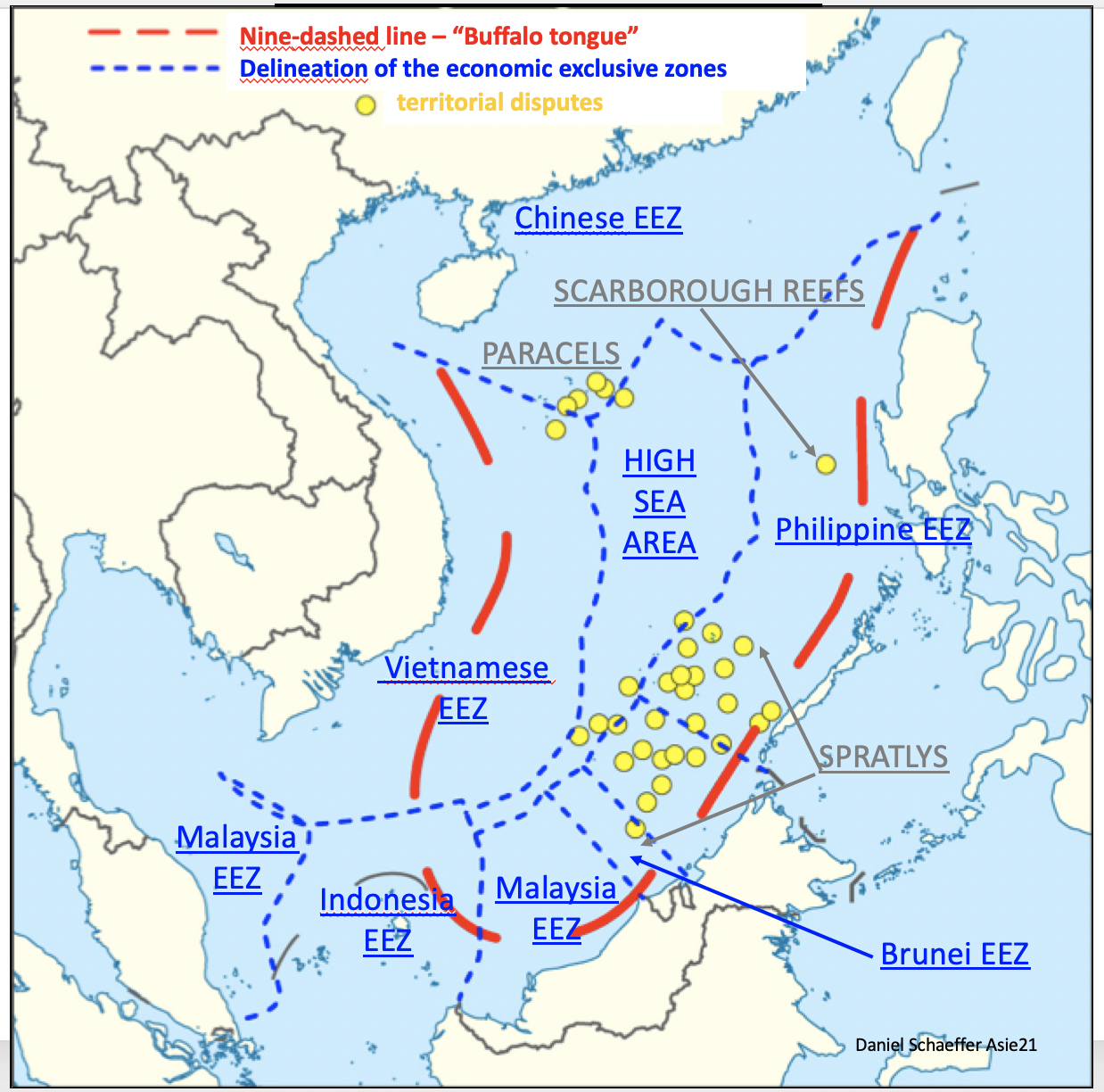Le 22 janvier 2021, le Comité permanent de l’Assemblée nationale populaire chinoise a promulgué la nouvelle « loi de la république populaire de Chine sur la police maritime ». Elle permettra aux garde-côtes chinois d’exercer le droit de l’État en mer sur toutes les zones maritimes revendiquées par Pékin au-delà de ses droits légitimes en mer de Chine de l’Est et du Sud ainsi que dans le détroit de Taïwan, et ainsi de mener des opérations de police dans plusieurs secteurs des zones économiques exclusives de ses voisins et en haute mer. En s’arrogeant un tel droit la Chine renforcera ses prétentions sur des espaces marins internationaux. Si les pays d’Asie du Sud-Est et les pays dont les marines fréquentent ces mers ne se liguent pas pour exiger immédiatement l’abolition ou la rectification d’une telle loi, son application, effective depuis le 1er février, conduira fatalement à des passes d’armes violentes entre garde-côtes chinois et forces navales sud-est asiatiques ainsi que celles des États-Unis et de leurs alliés.
Suivez l’évolution en Asie avec un abonnement à Asie21 🐄
On the 22nd of January 2021 the Standing committee of Chinese People’s National Congress adopted the new “law of the People’s Republic of China on the maritime police”. That law shall allow the Chinese coast guards to enforce the maritime law all over the maritime areas that Peking is claiming beyond its legitimate rights in the East and South China seas as well as in the Taiwan strait, and thus to conduct maritime police operations over different parts of the exclusive economic zones of the other coastal States of the two seas, and over the remaining part of high sea in between in the South China sea. By availing itself with such prerogatives China will strengthen its claims over international maritime areas. If the South-East Asian Nations and the countries whose merchant ships and navies are accustomed to cross those seas or exercise there do not immediately demand the abolition or the modification of that law, it shall inevitably lead to violent clashes of arms between Chinese coast guards and the South East Asian countries’ naval forces and those of the United States and its allies.

